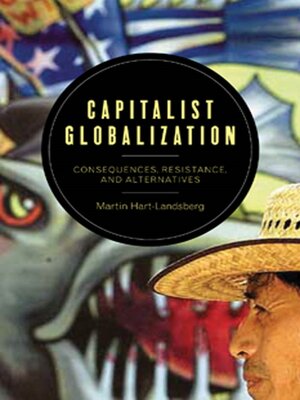Capitalist Globalization
ebook ∣ Consequences, Resistance, and Alternatives
By Martin Hart-Landsberg

Sign up to save your library
With an OverDrive account, you can save your favorite libraries for at-a-glance information about availability. Find out more about OverDrive accounts.
Find this title in Libby, the library reading app by OverDrive.



Search for a digital library with this title
Title found at these libraries:
| Library Name | Distance |
|---|---|
| Loading... |
"Globalization," surely one of the most used and abused buzzwords
of recent decades, describes a phenomenon that is typically
considered to be a neutral and inevitable expansion of market
forces across the planet. Nearly all economists, politicians, business
leaders, and mainstream journalists view globalization as the
natural result of economic development, and a beneficial one at
that. But, as noted economist Martin Hart-Landsberg argues, this
perception does not match the reality of globalization. The rise of
transnational corporations and their global production chains was
the result of intentional and political acts, decisions made at the
highest levels of power. Their aim – to increase profits by seeking
the cheapest sources of labor and raw materials – was facilitated
through policy-making at the national and international levels, and
was largely successful. But workers in every nation have paid the
costs, in the form of increased inequality and poverty, the destruction
of social welfare provisions and labor unions, and an erratic
global economy prone to bubbles, busts, and crises.
This book examines the historical record of globalization and restores
agency to the capitalists, policy-makers, and politicians who
worked to craft a regime of world-wide exploitation. It demolishes
their neoliberal ideology – already on shaky ground after the 2008
financial crisis – and picks apart the record of trade agreements
like NAFTA and institutions like the WTO. But, crucially, Hart-
Landsberg also discusses alternatives to capitalist globalization,
looking to examples such as South America's Bolivarian Alliance
for the Americas (ALBA) for clues on how to build an international
economy based on solidarity, social development, and shared prosperity.







